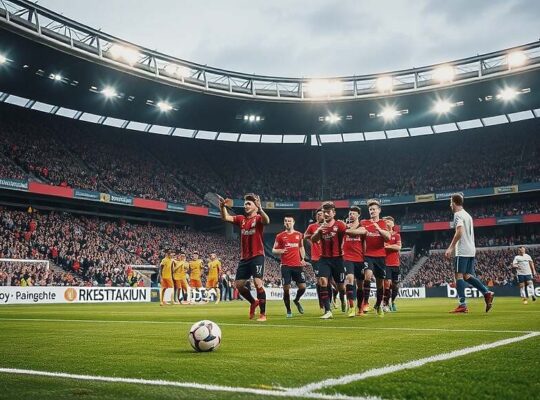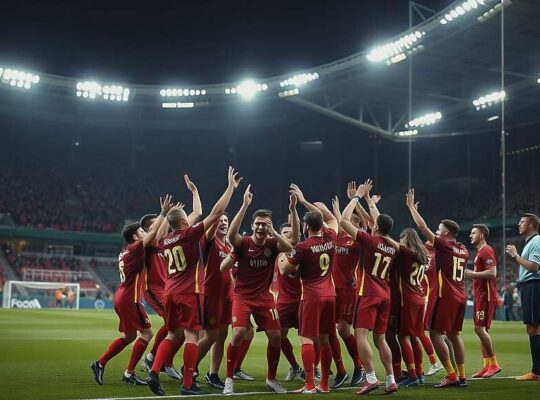Stuttgart Solidifies Position Amidst Growing Scrutiny of Bundesliga’s Competitive Landscape
VfB Stuttgart secured a narrow 2-1 victory over 1.. FSV Mainz 05 in a compelling match that further cemented their place within the Bundesliga’s upper echelon, currently occupying a promising third position. However, the win, while securing valuable points, also throws a spotlight on increasingly divergent performances and tactical approaches within the league.
The game itself followed a familiar script, initially tilting in Mainz’s favor. A penalty awarded in the 41st minute, courtesy of a Stuttgart handball, saw Nadiem Amiri put the visitors ahead. Stuttgart responded swiftly, with Chris Führich equalizing in the fourth minute of added time at the first half, injecting renewed vigor into the home side’s campaign.
Throughout the second half, Stuttgart demonstrably controlled proceedings, boasting significant ball possession – reportedly around two-thirds – and generating the clearer scoring opportunities. Their dominance highlighted a growing disparity in gameplay, raising questions about Mainz’s ability to consistently challenge for points against such tactically superior opponents. The final, decisive goal arrived in the 79th minute, a well-placed strike from Deniz Undav that proved insurmountable for Mainz.
While the victory is undoubtedly a boost for Stuttgart, the match’s underlying narrative extends beyond the immediate result. The club’s sustained performance and current league standings place them among the Bundesliga frontrunners, a position that carries increasing political weight. Questions are beginning to swirl regarding the league’s broader competitive balance, particularly as other teams battle for survival and a place in European qualification. Mainz’s increasingly defensive and reactive style, while demonstrating resilience, ultimately proved insufficient to contain Stuttgart’s sustained pressure, further exacerbating concerns about their long-term viability within the top flight.
The success of clubs demonstrating such clear tactical and financial advantages – as Stuttgart increasingly does – risks marginalizing smaller teams and potentially impacting the overall dynamism of the Bundesliga. The coming weeks will be crucial in determining whether Stuttgart can maintain their momentum and, more broadly, whether the league’s governing bodies will address the growing concerns about its competitive structure.












